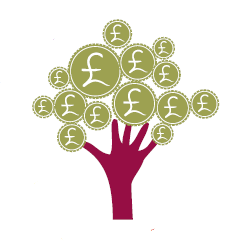The following blog is cross-posted with the kind permission of Alliance Magazine which posted it on 17 February. The blog is written by Barnaby Wiener, a Trustee with the Treebeard Trust.
When we set up Treebeard Trust in 2011, we adopted the traditional foundation model: invest the assets for financial return and give away the income to charitable causes. We had a vague sense there was something unsatisfactory about this – such a small part of our assets actually deployed to support our mission – but we didn’t articulate it and certainly didn’t see that there was anything we could do about it.
Then we discovered social investment. It was one of those lightbulb moments, where a solution appears before you’ve actually identified the problem, and we leapt at the opportunity. Initially our target was to allocate 20 per cent of our assets in impact investments (we prefer the term ‘impact’ to ‘social’), with the expectation that it would take us five years to get there. As things stand currently, I think we’ll get there in under three.
We thought it would be a challenge to identify attractive opportunities, but in fact the problem has been the opposite: managing the deal flow. We made our first investment in July 2015 and we’re now up to over twenty, covering a broad spectrum of social issues and asset classes (equity, property, debt etc).
We’re excited by both the social impact they create and the financial returns they should deliver. Regarding the latter, we don’t feel we’ve compromised on our financial objectives one iota – in the current environment of zero interest rates and inflated asset prices, we suspect that the average mainstream investment portfolio carries far more risk than is generally appreciated.
More fundamentally, it has radically transformed how we operate. We no longer think of grant-making and investment as separate functions. In fact, we have outlawed the ‘G’ word altogether. It has a ring of patronage about it, a malodorous whiff of munificence. Instead, every cheque we write is an investment.
That’s not to say we don’t still provide funding to charities with no expectation of financial return, but we now refer to this as ‘impact-only investment’.
All of our investments are now subject to an evaluation framework based on their social impact and their financial risk and return profile. In the case of impact-only investments, there is 100 per cent probability that we lose all our money, and we budget 5 per cent of the trust’s assets for these investments – in line with our historic grants budget.
We allocate another 5 per cent to ‘impact first’ investments, where we expect to get our money back, but are willing to accept below market returns and/or above average risk in return for a compelling social impact.
The rest of the portfolio covers a broad spectrum of liquid and illiquid, equity and debt, high risk and low risk investments. With some, the social impact is explicit and powerful, with others it is limited or hard to discern. But in all cases it is at least evaluated, and to the extent that we can enhance the positive impact of the trust’s assets, without compromising its financial stability, we will continue to do so.
We’ve travelled a long way quite quickly, but we’re still a long way from the destination. The system is broken. A world in which individuals and corporations devote themselves to narrow, parochial goals in the expectation that the public and charitable sectors will clean up whatever mess is left in their wake is not sustainable.
Government finances are stretched to the brink of insolvency and charities, reliant on a donation-based funding model, are wholly ill-equipped to fill the gap. History teaches us that human beings are wonderfully resourceful when their backs are against the wall, and we believe we are witnessing just such a moment.
By breaking down the barrier between philanthropy and commerce, social impact investment has the potential to transform modern capitalism and unleash it as a force for good.
Find out more about how trusts, foundations and charities with investable assets can make social investments via the GET INFORMED – Social investment for boards campaign, launched by Big Society Capital.
Barnaby Wiener is a Trustee with the Treebeard Trust.
Please note, the cross-posting of this blog does not represent endorsement or necessarily reflect the view of Barrow Cadbury Trust. The blog is cross-posted with the aim of contributing to the conversation on social investment.

